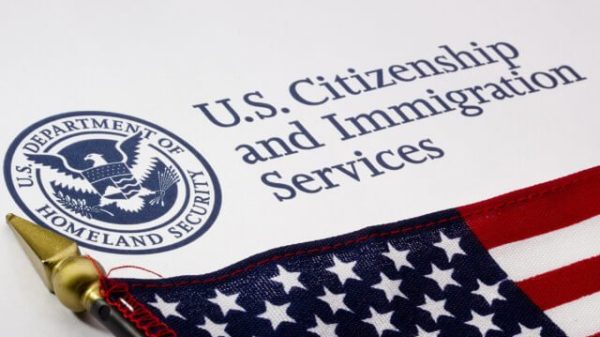Last summer’s landmark Supreme Court ruling, overturning affirmative action in college admissions, heralded a seismic shift in higher education. This decision terminated decades of precedent, effectively barring both public and private colleges and universities from considering race in admissions. In the aftermath, the landscape of college admissions has been tumultuous, characterized by significant changes and adaptations.
To illuminate the impact and future implications of this ruling, Ethnic Media Services (EMS) assembled a distinguished panel of experts. This panel included John C. Yang, President and Executive Director of Asian Americans Advancing Justice (AAJC); Thomas A. Saenz, President and General Counsel of the Mexican American Legal Defense and Educational Fund (MALDEF); Jin Hee Lee, Director for Strategic Initiatives at the NAACP Legal Defense Fund (LDF); and Dr. Vikash Reddy, Senior Director of Policy Research at The Campaign for College Opportunity. These experts provided critical insights into the evolving landscape of college admissions, how higher education institutions are adapting, and the uncertain future amidst declining confidence in higher education.
Dr. Reddy initiated the discussion with a comprehensive analysis of the current state of college admissions over the past year. He highlighted significant challenges stemming from the troubled rollout of the FAFSA (Free Application for Federal Student Aid), exacerbating difficulties for marginalized students navigating the admissions process. Delays and technical issues with FAFSA have left many colleges and universities grappling to finalize their incoming classes, casting uncertainty over the admissions landscape.
The Ripple Effect and Broader Implications
Beyond admissions, the SCOTUS decision has cast a chilling effect on diversity, equity, and inclusion (DEI) programs nationwide. The Education Trust reported that in 2023 alone, 45 bills targeting DEI programs were introduced in state legislatures, spearheaded by states like Texas and Florida. These legislative actions have led to funding cuts for DEI initiatives and positions, creating substantial barriers for institutions striving to foster diversity.
Financial aid has also felt the impact, with officials in states such as Missouri, Kentucky, and Wisconsin swiftly interpreting the ruling to halt race-conscious scholarships. Notably, the University of Missouri made headlines for attempting to reclassify donor-created scholarships intended for minority students.
Adaptations and Future Directions
Despite these challenges, some institutions are innovating ways to adapt. Dr. Reddy highlighted holistic review processes, which consider a broad spectrum of factors beyond race, as instrumental in mitigating the SCOTUS decision’s impact. The University of California system, operating under similar constraints since Proposition 209 passed 25 years ago, stands as a model. UC Berkeley and UCLA have notably achieved diversity gains in recent years through holistic admissions practices.
Additionally, there is a growing movement to eliminate legacy admissions, which often favor alumni children and perpetuate inequities. States such as Colorado, Virginia, and Maryland have enacted or are considering legislation to abolish legacy considerations in admissions.
Advocating for Policy and Practice
Dr. Reddy stressed the urgency of advocating for policies and practices that promote equity across all levels of education. The Campaign for College Opportunity has published a series of briefs advocating for neutral, equity-centered reforms. These include access to college preparatory curricula at the high school level, dual enrollment programs, and direct admissions pathways from high school to college. Ensuring inclusive campuses with diverse faculty and mentors, and effectively using disaggregated data for planning and budgeting, are also crucial steps forward.
John C. Yang, President of Asian Americans Advancing Justice (AAJC), provided a critical perspective from Washington, DC. Yang underscored the broader implications of recent Supreme Court decisions, noting their setbacks for civil rights across multiple arenas. He highlighted decisions undermining federal agency regulatory authority, eroding the Voting Rights Act, and overturning Roe v. Wade. Yang framed the discussion on affirmative action within this broader context of assaults on individual rights and government roles in addressing systemic inequities.
Yang emphasized that the SCOTUS decision on affirmative action should not be viewed as advantageous for Asian Americans but as an attack affecting all communities of color. He cautioned against divisive rhetoric and zero-sum thinking, asserting that equal access to opportunities is not finite but should be universally pursued.
Yang discussed the structural impacts on college admissions, with institutions grappling to adjust their processes, causing uncertainty among students regarding how to present their identities in applications. He noted concerns among Asian American students about the perceived devaluation of diversity by certain colleges, exacerbating broader attacks on diversity initiatives beyond higher education. Yang debunked the “model minority” myth, pointing out persistent barriers faced by Asian Americans in areas like corporate leadership despite their population size.
Highlighting disparities in corporate America, Yang cited statistics revealing underrepresentation of Asian Americans in executive roles, particularly Asian American women facing significant barriers to advancement compared to their white counterparts. He concluded by advocating for collaborative efforts to combat discrimination and develop programs addressing the impacts of recent Supreme Court decisions, stressing unity across communities of color in pursuit of equity.
Jin Hee Lee, Director for Strategic Initiatives at the NAACP Legal Defense Fund (LDF), offered a penetrating analysis of the Supreme Court’s affirmative action ruling and its wide-ranging implications. Acknowledging the challenges since the landmark ruling, Lee clarified that its legal scope was narrowly focused on race in higher education admissions. Nevertheless, she highlighted a ripple effect affecting employment, DEI initiatives, and funding, reflecting a broader attack on affirmative action aimed at perpetuating the myth of a level playing field devoid of racial inequalities.
Lee critiqued the notion that addressing discrimination equates to discrimination itself, an argument increasingly used to undermine DEI efforts and other programs promoting racial equality. She urged a deeper examination of racial disparities in college admissions and employment, emphasizing the historical contexts of racism that continue to impact marginalized communities disproportionately.
Lee linked attacks on DEI programs to broader challenges facing racial equality initiatives, drawing parallels with earlier assaults on critical race theory (CRT) in classrooms following the 2020 civil rights protests against racial inequality and anti-Black racism. At the core of these issues, Lee emphasized the necessity of confronting racial inequalities in a multi-racial democracy, calling for serious reflection on societal approaches to achieving racial justice amid upcoming elections shaping future policies.
Thomas A. Saenz, President and General Counsel of MALDEF, contributed a crucial perspective, emphasizing broader implications and necessary responses to the SCOTUS decision on affirmative action. Addressing post-decision uncertainties, Saenz acknowledged the issue’s limited development due to expanded applications of the Harvard and University of North Carolina decisions beyond higher education admissions, diverting focus from equitable educational opportunities for applicants of color.
Saenz emphasized the critical role of data collection in evaluating decision impacts, drawing from California’s experience post-Proposition 209 to highlight the obscured impact on the Latino applicant pool. He underscored the imperative for institutions to continue collecting race and ethnicity data, mandated by Title VI of the Civil Rights Act of 1964, to assess criteria for unjustified discriminatory effects.
While the SCOTUS decision prohibits systemic consideration of race in admissions, Saenz noted allowance for consideration of an applicant’s racial experiences and discrimination in admissions essays to comply with legal standards. Regarding support centers and ethnic studies program eliminations, Saenz clarified their legality under the condition of inclusivity, stressing their vital role and legal permissibility.
Explaining the distinction between pooled resources and individual consideration in race-based scholarships, Saenz cited MALDEF’s scholarship program as an example, ensuring compliance with anti-discrimination laws while providing targeted support for the Latino community. He concluded by reaffirming institutions’ obligations under Title VI to eliminate practices with significant discriminatory effects, urging exploration of alternative admissions criteria to ensure equitable opportunities for black and Latino students, underscoring adherence to legal mandates governing university practices.
In conclusion, as the higher education community navigates this evolving landscape, the imperative for equitable policies and practices is paramount. Insights from experts highlight the necessity of adapting while upholding commitments to diversity and inclusion. The future of college admissions in a post-affirmative action era hinges on collective efforts of institutions, policymakers, and advocates to ensure all students have equal opportunities to thrive.
#AffirmativeAction #HigherEducation #SCOTUS #DiversityInclusion #CollegeAdmissions #CivilRights #EducationEquity #EthnicStudies #DEI #RaceInAmerica










